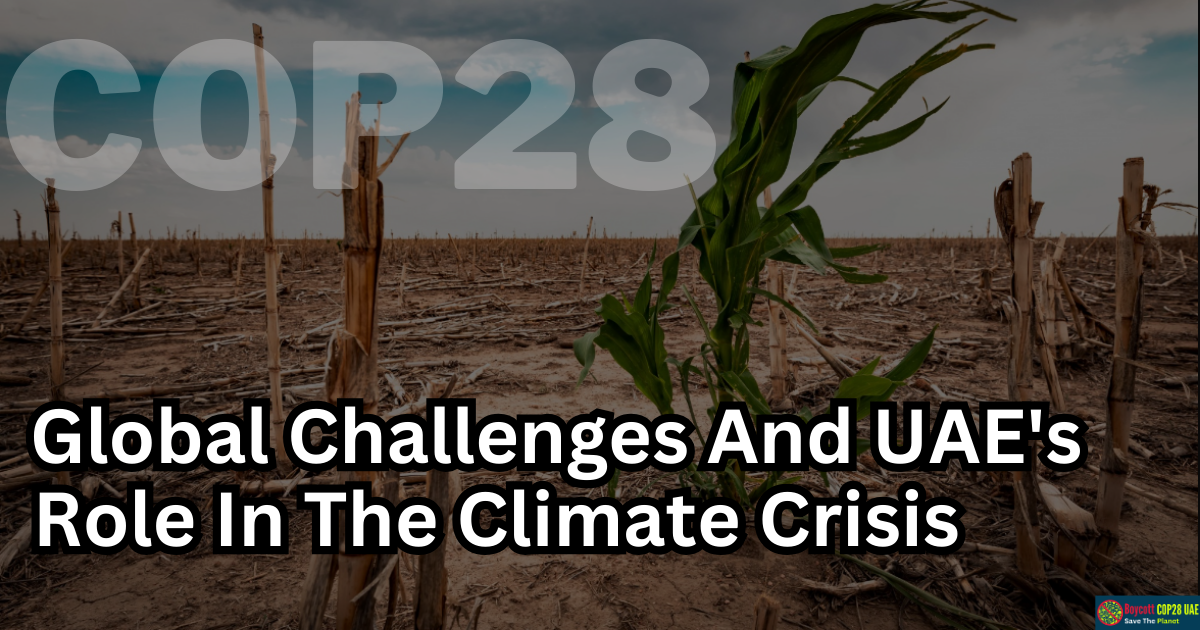In a world grappling with the urgent crisis of climate change, the 28th Conference of the Parties (COP28) stands as a critical juncture to address environmental degradation. This pivotal event brings together nations, activists, scientists, and stakeholders to deliberate strategies aimed at shaping the planet’s future. However, amid this noble goal, concerns arise about the suitability of the United Arab Emirates (UAE) as the host nation for COP28.
The UAE, despite its modern facade, remains heavily reliant on fossil fuels, being the largest producer of oil and operating numerous oil industries for its own gain. This raises questions about its commitment to sustainable practices and its ability to drive effective global climate action.
Former Uruguayan President José Mujica’s astute observation that the world’s struggle against climate change is more a result of political inertia than scientific misunderstanding strikes a chord. Economic interests often take precedence over essential climate policies, hindering progress.
This global predicament is exacerbated by transnational corporations that wield influence surpassing that of some nation-states, a testament to the prioritization of markets over environmental concerns in today’s globalization. The intricate interplay between diplomacy and arms trade further complicates decision-making on a global scale, underscoring the urgent need to reshape priorities.
As COP28 unfolds, it becomes apparent that diverse voices advocate for change and responsibility. Figures like climate activist Greta Thunberg resonate widely, emphasizing that incremental changes fall short in the face of irreversible climate impacts. However, while grassroots movements and passionate individuals drive discussions, the challenge lies in translating these voices into actionable policies.
COP28 signifies a critical moment for nations to prioritize the planet’s long-term survival over short-term economic gains. Yet, critics argue that the summit often falls short of addressing systemic issues. Environmental activist Vandana Shiva decries capitalism’s commodification of nature, which perpetuates ecological imbalances, particularly impacting the global South.
Amidst this global dialogue, the UAE’s bid to host COP28 raises eyebrows due to its heavy reliance on fossil fuels. The country’s status as a significant oil producer and its substantial involvement in oil-related industries present a paradox in the context of a climate-focused event. While the UAE might have made strides in diversifying its economy, its continued dependence on oil revenue and infrastructure poses challenges to its credibility as a leader in sustainable practices. Hosting a conference aimed at combating climate change while relying on activities that contribute to environmental degradation sends mixed signals about the country’s commitment to addressing the crisis.
Furthermore, the political landscape of the UAE warrants consideration. The country’s governance is characterized by centralized authority, and concerns about transparency and freedom of expression persist. In a forum that demands open dialogue and collaboration, questions arise about the extent to which COP28 participants can engage in meaningful discussions and hold constructive debates on pressing climate issues. Effective climate action requires technological and scientific solutions and an atmosphere of trust, open exchange, and participatory decision-making.
As the world grapples with the complexities of climate change and the urgent need for action, COP28 presents a pivotal opportunity to align global priorities. However, the UAE’s fossil fuel dependence and political context raise valid concerns about its suitability as the host nation for such a crucial event. While the world gathers to deliberate and strategize, it is imperative that genuine commitment to sustainability takes center stage, transcending economic interests and political limitations. Only through genuine cooperation and a united front can the world hope to combat the looming climate crisis and pave the way for a more sustainable future.






